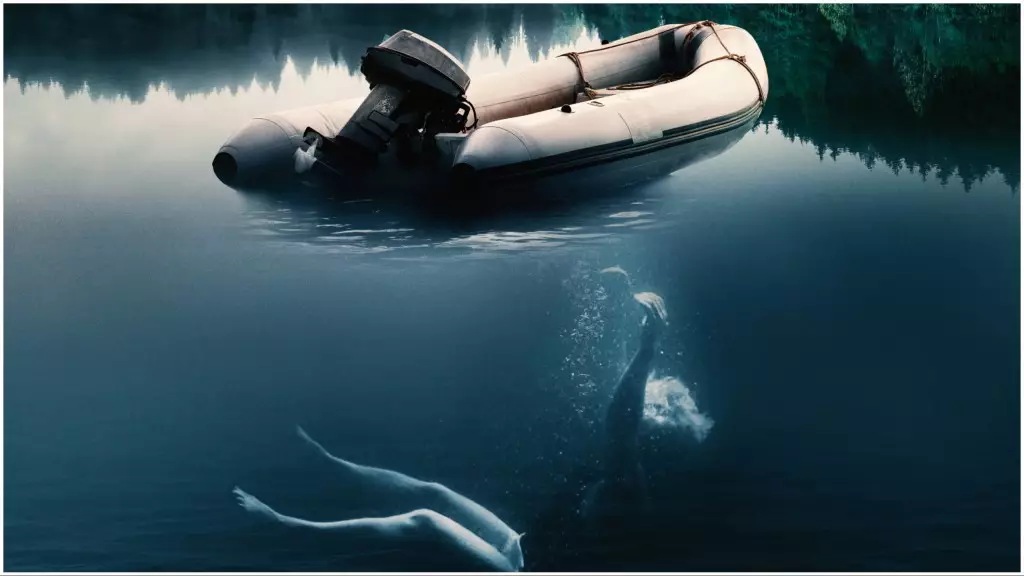The upcoming true crime documentary series “In Cold Water,” set to premiere on Prime Video and Sky New Zealand, chronicles a tragic and complex case that has intrigued and unsettled audiences. This documentary unpacks the circumstances surrounding the drowning of Laura Letts-Beckett, a schoolteacher who died during a fishing trip in the picturesque yet perilous Canadian Rocky Mountains. This narrative is not just a straightforward recounting of a drowning; it serves as a poignant reminder of the fragility of life and the gray areas of human relationships, layered with implications of treachery and justice.
The narrative kicks off with Laura’s husband, Peter Beckett, a former New Zealand city councilor whose whimsical persona starkly contrasts the gravity of the events discussed. After Laura’s tragic death, Peter faced harrowing accusations, culminating in murder charges that would change the course of his life indefinitely. Faced with a jury that could not reach a consensus initially, followed by a subsequent conviction, his journey through the justice system is filled with convoluted emotional and ethical ramifications. Ultimately, it was an appeal in 2021 that rescinded his conviction, leaving the case shrouded in ambiguity and ongoing debate.
In an intriguing extended preview, viewers are introduced to an elderly Peter as he opens up about the day of Laura’s drowning. Recollections of hearing a splash followed by the sight of her vibrant yellow shorts bobbing in the water imbue the narrative with a compelling sense of urgency and desperation. Peter asserts that he attempted to rescue his wife, describing in harrowing detail the failure to reach her amidst the icy depths of the lake. His memories are marked by profound trauma—the recollected moment when he could not save the woman he loved declares the weight of his emotional burden.
However, his narrative is punctuated by skepticism from former Canadian police officer Jacquie Olsen, creating a dissonance within the documentary. Her remark that “his story did not make sense” signals viewers to approach Peter’s recollections with discernment. This interplay between Peter’s emotional testimony and Jacquie’s scrutiny lays the groundwork for a larger conversation about memory, guilt, and the reliability of personal narrative in the context of tragedy.
The creators of “In Cold Water,” under the guidance of C3 Media President Pablo Salzman, intend to transcend conventional crime storytelling. In his remarks, Salzman articulates the inherent complexities of the human psyche, the motivations that drive individuals to act, and the moral quandaries that ensue from tragic events. By delving into the uncomfortable truths surrounding betrayal and justice, the series aims to explore the nebulous boundaries between right and wrong.
The documentary invites audiences to engage in critical reflections on the nature of truth in a world often painted in shades of gray. Audiences are compelled to navigate a narrative that destabilizes their original assumptions, urging them to question their preconceived notions about guilt and innocence.
In addition to the profound personal stakes at play, “In Cold Water” also reflects a broader community narrative. The involvement of local producers with personal ties to the case hints at deeper layers of societal implications—highlighting how individual tragedies can ripple across communities, raising questions about the responsibilities of those who witness and partake in such events.
The genuine interest in Laura Letts-Beckett’s case speaks to the layers of human emotion that connect us all, making stories like theirs resonate deeply. The commitment from the producers to thoroughly explore this case exemplifies a serendipitous alignment of storytelling and social reflection—paving the way for a documentary that not only captivates but also challenges viewers to grapple with the complexities of human existence.
As “In Cold Water” prepares for its global launch, anticipation builds around a series that promises to be both haunting and thought-provoking. Through its focus on human motivation, the ethical complexities of justice, and the intricacies of personal testimony, the documentary ultimately endeavors to deliver more than just a crime story; it aims to spark crucial conversations about trust, loss, and the human condition. Whether it answers questions or raises new ones, viewers are sure to be captivated by the journey awaiting them in the depths of these chilling waters.

